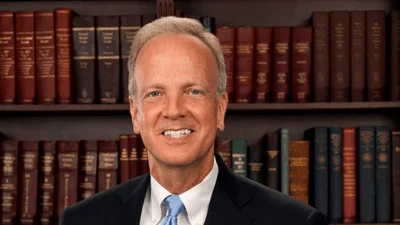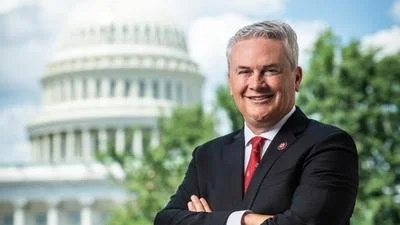Congresswoman Betty McCollum (D-MN), Chair of the Interior, Environment, and Related Agencies Appropriations Subcommittee, delivered the following remarks at the Subcommittee's hearing on the fiscal year 2020 budget request for the Indian Health Service:
Good morning, I’d like to welcome to the subcommittee Rear Admiral Michael D. Weahkee, the Principle Deputy Director of the Indian Health Service (IHS).
The Rear Admiral testified before this subcommittee last year, and we are very happy to have you back today. Joining the Rear Admiral today is Ann Church, Acting Director of Finance and Accounting, and Rear Admiral (Retired) Gary Hartz, Director of Environmental Health and Engineering.
Before getting into the details of this budget request, I must say that I am extremely disappointed that the Administration still has not nominated a Director to lead IHS.
The Government Accountability Office (GAO) placed IHS on its High Risk program list in part because of the Service’s lack of leadership. While I appreciate Rear Admiral Weahkee’s service, given the challenges facing IHS, a confirmed Director is imperative. I encourage the Administration to submit a nomination to the Senate in the near future.
Our hearing today will address the President’s FY 2020 budget request of $6 billion for the Indian Health Service. While the budget proposes a $140 million increase, or 2.4 percent over the FY 2019 enacted level, this does not even cover the cost of inflation and other fixed costs, and it falls far short in addressing the health care needs of our Native brothers and sisters.
Native Americans have a shorter life expectancy and suffer from disproportionate disease burdens associated with heart disease, cancer, diabetes, obesity and other chronic illnesses. The statistics are sobering, yet the Administration proposes a budget that is nothing but smoke and mirrors. For instance, the President proposes $20 million to begin a national Community Health Aide Program (or CHAP) - a very worthy program - while reducing funding for the Community Health Representatives program by $39 million.
Community Health Representatives provide important in-home services. Congress rejected the Administration’s proposal to eliminate Health Representatives last year, and I am disappointed the Service turned around and used it as an offset to fund CHAP.
Another example is a proposed increase of $8 million in hospitals and health clinics to recruit and retain health professionals, accompanied by a reduction of $14 million in health professions. How can the Service fill critical health profession vacancies with a net decrease of $6 million to recruit and retain health professionals?
And I would be remiss if I didn’t point out that this budget proposal does not align with the Service’s FY 2019 - 2023 Strategic Plan, which was released in February, two weeks before this budget. The Strategic Plan wisely recognizes the need to recruit, develop, and retain health care providers, and the importance of preventive care.
I also want to note that given the estimated total facilities need for IHS is approximately $14.5 billion. So the proposed $78 million cut to facilities construction is nonsensical and a nonstarter. This subcommittee recognizes the importance of the programs proposed for reduction or elimination, and no evidence has been presented that leads me to change my mind.
That said, there are proposals in President Trump’s budget that address real concerns for the Indian Health Service. From 2010 to 2016, there has been a 46% increase in the annual number of HIV diagnoses among Native Americans. And as of 2016, Native Americans are 2.7 times more likely to die from Hepatitis C than non-Hispanic whites. The Administration’s focus on HIV and Hepatitis C is timely, although given the cost of medicine, I question whether the $25 million proposed in this request is enough to diagnose and treat both diseases. Since the Service’s budget is already oversubscribed, the President is unrealistic to think that his HIV & Hepatitis C initiative can be funded without additional money.
For years we have discussed the need for IHS to develop a comprehensive I.T. system without impacting services. The budget’s proposal of a separate line item is timely and appropriate and will ensure the costs are transparent. It is also important that the new system be interoperable with the Veterans Administration’s new I.T. system. Speaking of the V.A., this subcommittee will continue working with our Mil-Con colleagues to ensure that the V.A. reimburses for care provided by the Service, and address any lingering issues.
I’m aware Admiral Weahkee that you are only the messenger, and that you are doing your best given the resources provided. The long-standing challenges facing the Service require a confirmed Director. Thank you for your efforts to fill this void, and I appreciate your dedicated work.
That said, all Members of this Committee-and frankly, everyone across the country-were outraged to learn that an IHS doctor had been convicted of child sexual abuse in Montana and pending charges in South Dakota.
I want to learn what you are doing to ensure that proper screening, credentialing, and reporting happens from now on. We need to know what the Service is doing to ensure that this type of abuse, or frankly any abuse, never happens again
This Subcommittee will begin crafting a 2020 appropriations bill that works hard to fulfill our treaty and trust obligations by meeting the health needs of Native Americans. We will also work with the authorizing Committees - Budget, Natural Resources, and Energy and Commerce - to move my bipartisan bill to provide advance appropriations for tribal programs.
We will not stop there though. In order to ensure that Native health does not suffer if a sequestration occurs, we will work to have language included that exempts the Indian Health Service from sequestration. The very lives of Native peoples and future generations depend on a strong and robust Indian Health Service. Congress must not shortchange healthcare for Indian Country.
Admiral Weahkee, I look forward to working with you to address the health care needs of Indian Country and the challenges facing IHS.
I would now like to yield to our Ranking Member, Mr. Joyce, for his opening remarks.
Source: U.S. Department of HCA









